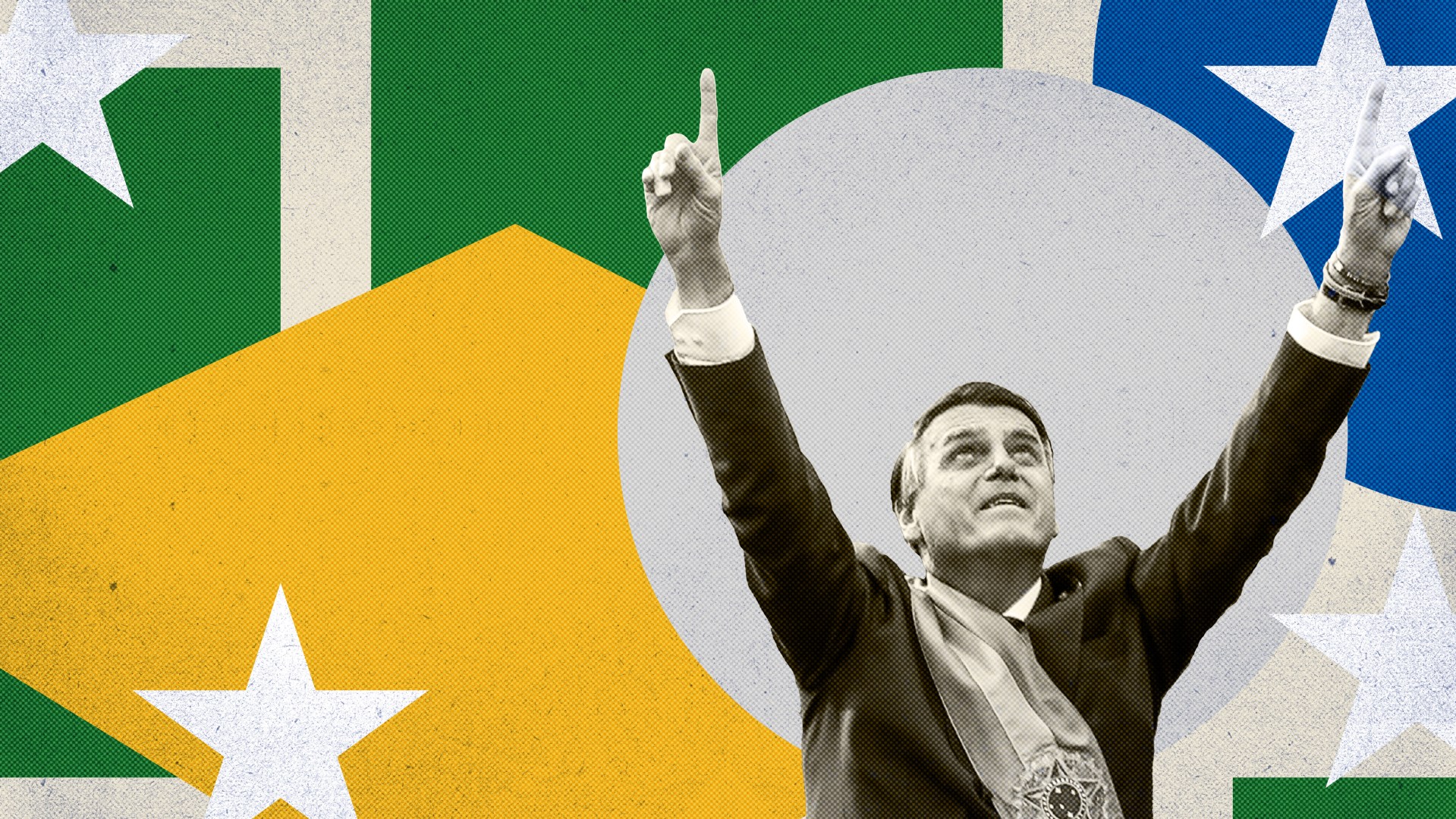In this series

Incumbent president Jair Bolsonaro’s campaign slogan is “Brazil above everything, God above everyone.” Do you see this as something he really believes in?
Guilherme de Carvalho: In my judgment and based on my conversations with people with access to the president, I believe he really believes in that slogan. He is not faking this—at least, not consciously. The issue is that he has no understanding of God and what such a slogan would actually imply for the nation. His reason for choosing this slogan is evident: to communicate with the practicing Catholic and evangelical populations whose values are ignored by our cultural elites.
Sadly, Bolsonaro has a distorted understanding of God and the gospel, and this causes him to take God’s name in vain, associating it with his personal project. But this is not new; we live in a country that practices a widespread and distorted cultural Christianity. The average Brazilian talks about God all the time, despite not knowing what he is talking about.
The Left also tries, at times, to use the name of God, but it is not very convincing, as everyone sees that it is a farce. In the case of Bolsonaro, it is more difficult to show the mistake, precisely because he believes what he says.
Iza Vicente: Although it is impossible to know the deepest beliefs of a person, including Bolsonaro, I understand that the slogan adopted by Bolsonarism is born not from a genuine conviction of the sovereignty and magnitude of God but as a marketing lure to capture the feeling of faith present in most Brazilians. It is also an authoritative and theocratic signal, because by emphasizing the “God [who is] above everyone” as an imperative of strength, Bolsonaro forgets the God who was also among us, being the servant of all.
Ziel Machado: Whoever turns God into a political canvasser is running a serious risk of taking God’s name in vain.
During the pandemic, Bolsonaro mocked people for dying of COVID-19 and struggling to breathe. To me, these actions did not demonstrate a knowledge of or a relationship with the biblical God.
It is possible that Bolsonaro believes what he says, but comparing what he says with his acts of mercy—which don’t exist—amounts to taking God’s name in vain and portrays an unbiblical image of God. And a politician whose policies have repeatedly shown a lack of empathy for the pain of the people is not referring to the loving and compassionate God of Scripture.
Jacira Monteiro: This slogan is political propaganda, not a belief Bolsonaro holds. Evangelicals are targets of conquest by politicians, as they comprise a considerable portion of the national vote. Under the presumption of being a Christian (although his Christianity is certainly not the same as that of the Bible or Jesus Christ), Bolsonaro won over evangelical Christians, manipulating them with his “Christian” slogan.
However, God himself said that we must “give back to Caesar what is Caesar’s, and to God what is God’s” (Matt. 22:21). The separation of state and church is a biblical principle. The Christian who seeks political power and manipulates Christians for that purpose has not understood the teachings of Jesus and is in sin.
Regarding the second part of the slogan, it is obvious that we, as Brazilians, must love Brazil and fight for the common good. But blind patriotism is not a Christian thing, for the Bible says our homeland is in heaven (1 Pet. 2:11; Phil. 3:20), not here on earth. Brazil must not be above all but must serve all. As Christians we are called to serve, not dominate, and a “Christian” president should know that.
Ricardo Barbosa: Generally, the slogan of a political campaign or a government works as a form of publicity, an affirmation of values and expectations. Bolsonaro’s slogan is this. I imagine he chose to affirm values such as faith, religion, homeland, or patriotism. But I have no way of answering the question of whether or not he believes in this slogan. It is a question that only he can answer.
Read our guests’ bio in the lead article.



















